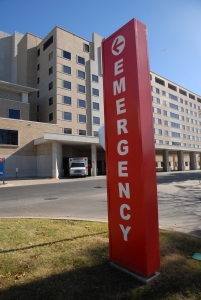A Suffolk jury has awarded Li Chen and Peter Xu $5 million in a Boston obstetric malpractice lawsuit against Tufts Medical Center. Xu and Chen’s son Edward Xu, now 9, has a permanent debilitating syndrome that makes it impossible to digest food. He can only be fed via a tube in his chest for hours at a time. (The verdict actually was $24.4 million but because of a prior agreement made by the parties, Edward’s family is getting $5.3 million.)
The couple claims that their son’s condition-part of his intestines had to be taken out- is a result of the hospital’s failure to respond appropriately to his symptoms after he was born prematurely and they took too long to diagnose his condition. The hospital, however, disagrees and says that the care team did everything they could, including providing the applicable standard of care. The Boston Herald says that medical expenses for Edward’s care is over $2,000 a week.
Boston Medical Malpractice
Medical professionals are supposed to provide proper prenatal and postnatal care, in addition to proper care during delivery. When failure to provide such care causes a child to sustain serious health issues or injuries, this can be grounds for a Boston medical malpractice case.
Doctors, obstetricians, and nurses need to be very mindful of babies born prematurely, who may already be at risk of: breathing problems, heart issues, brain complications, temperature control issues, gastrointestinal problems, blood issues, metabolism problems, immune system issues, impaired cognitive development, Cerebral palsy, vision difficulties, hearing issues, dental problems, psychological issues, behavioral problems, and chronic health issues. Proper monitoring of both infant and mother before, during, and after delivery are important so that any warning signs of problems can be identified and treated immediately to prevent long-term complications.
Even babies carried to term can end up with serious injuries or health issues if they don’t get the proper medical care or a medical mistake happens: shoulder dystocia, eclampsia, uterine abruption, persistent pulmonary hypertension, placental abruption, macrosomia, and hypoxic ischemic encephalopathy.
Family to receive at least $5m in suit against Tufts Medical Center, Boston Globe, November 22, 2013
Jury awards $24.4M to parents of Tufts patient, Boston Herald, November 22, 2013
More Blog Posts:
The Dangers of Robotic Surgery, Boston Injury Lawyer Blog, November 22, 2013
Medford Doctor Accused of Massachusetts Medical Negligence Gets License Suspension, Boston Injury Lawyer Blog, November 14, 2013
Mirena IUD Lawsuits Continue to Make Their Way into the Courts, Massachusetts Drug Injury Lawyers Blog, November 13, 2013 Continue reading
 Boston Injury Lawyer Blog
Boston Injury Lawyer Blog


 In her lawsuit, Jorge and her attorney Clyde D. Bergstresser alleged that medical professionals at Emerson Hospital failed to review Jorge’s pertinent history, appropriately monitor and report vital signs, appropriately examine Jorge’s wound post C-section, and appropriately report the seriousness of the patient’s condition, which thus led to Jorge needing all limbs be amputated. Bergstresser also cited in Jorge’s lawsuit that Jorge had to have over 40 intensive surgeries, including the removal of some of her internal organs. She had to have her uterus, ovaries, gallbladder, and part of her colon removed in addition to both of her arms and legs, removed.
In her lawsuit, Jorge and her attorney Clyde D. Bergstresser alleged that medical professionals at Emerson Hospital failed to review Jorge’s pertinent history, appropriately monitor and report vital signs, appropriately examine Jorge’s wound post C-section, and appropriately report the seriousness of the patient’s condition, which thus led to Jorge needing all limbs be amputated. Bergstresser also cited in Jorge’s lawsuit that Jorge had to have over 40 intensive surgeries, including the removal of some of her internal organs. She had to have her uterus, ovaries, gallbladder, and part of her colon removed in addition to both of her arms and legs, removed.  According to the Department of Health and Human Services, a neurosurgical patient treated at the New Hampshire hospital is suspected to have had sporadic Creutzfeldt-Jakob disease (CJD), a degenerative neurological disease caused by a prion, a defective protein. Officials at the hospital believe that the prion may have been transmitted to patients through surgical equipment that was not fully sterilized. During normal sterilization procedures, these prions may not be fully eradicated.
According to the Department of Health and Human Services, a neurosurgical patient treated at the New Hampshire hospital is suspected to have had sporadic Creutzfeldt-Jakob disease (CJD), a degenerative neurological disease caused by a prion, a defective protein. Officials at the hospital believe that the prion may have been transmitted to patients through surgical equipment that was not fully sterilized. During normal sterilization procedures, these prions may not be fully eradicated.






